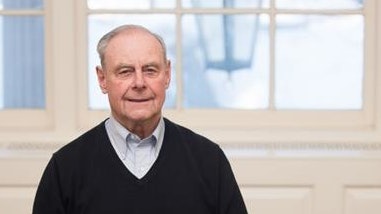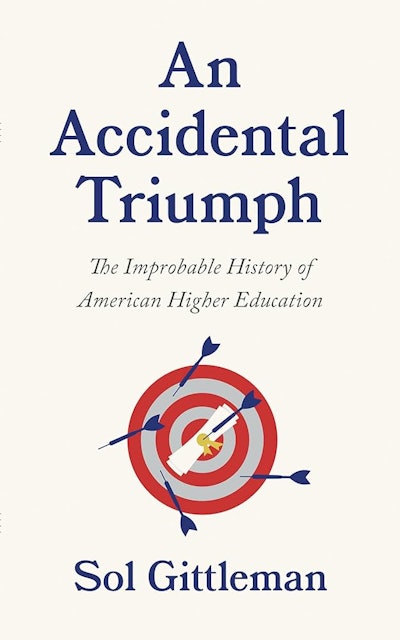Dr. Sol Gittleman has penned a must-read book for anyone with a vested interest in the past, present, and future of American academia.
An Accidental Triumph: The Improbable History of American Higher Education tells the unique story about what Americans think of higher education.
 Dr. Sol Gittleman
Dr. Sol Gittleman
At a time when some Americans are questioning the value of higher education, Gittleman — who joined the faculty at Tufts University in 1964 and rose through the ranks to serve as provost from 1981 to 2002, before he retired in 2015 — says criticism of higher education is nothing new.
“If you read the newspapers or listen to most Americans in the surveys, we’re at the bottom of the pit,” said Gittleman in an interview with Diverse. “Turns out that outside of this country, we’re the envy of the world. We have the greatest higher education system in the world. You just can’t convince the American people of that. They don’t want to hear it.”
In between tracing the historiography of higher education in the U.S., Gittleman cleverly weaves in stories about how, as a child of East European immigrants who did not read or write English, he would come to learn about this phenomenal enterprise.
 An Accidental Triumph: The Improbable History of American Higher Education tells the unique story about what Americans think of higher education.
An Accidental Triumph: The Improbable History of American Higher Education tells the unique story about what Americans think of higher education.
Gittleman notes that for those immigrant families who grew up in Hoboken, New Jersey — right across from New York City — access to college almost always meant attending the nearby schools.
“Our teachers told the few of us applying to college which schools would accept us; no one from my high school graduating class applied to what we call today an Ivy League institution,” he writes. The word “prestige” he adds, “was a meaningless word in any college selection conversation having significance only if a neighbor drove a Buick or Chrysler, instead of a Chevrolet or Plymouth.”
But World War II changed all of that, ushering in a new wave of immigrants who would revolutionize American colleges and universities. “Fortunately for me,” he writes, “I became part of the second phase of that historic change, one of the children of immigrants who, because of the enormous number of returning veterans, found opportunity where previously none had existed. My generation of academics was the luckiest in history. We entered the profession in the 1950s when deans were desperate to find anyone with a Ph.D. and a pulse, whether scientist, social scientist, or humanist. We were needed to stand or sit in front of the exploding numbers of undergraduates and graduate students filling the campuses in the decades after World War II, when there were simply not enough faculty available.”
Gittleman is quick to note that he is not a trained historian, nor does he see himself as an expert on American higher education. But truth be told, he most certainly is. His professional experience helping to lead one of America’s finest research institutions in Tufts University coupled with his faithful research on American exceptionalism in higher education gives him the necessary bona fides to outline this narrative for us all to read.
To be clear, Gittleman does not paint a rosy picture. Colleges and universities in America surely face problems. The rising cost of a college education, the decline in overall enrollment, scandals in college athletics, and the attacks on free speech and affirmative action are all challenges for sure. COVID-19 continues to have a chilling impact on higher education as institutions work to recover from the pandemic; numbers of foreign students coming to these shores to obtain a college degree are declining.
Nonetheless, Gittleman remains optimistic.
Despite the critics, who suggest that “we are a country whose faculty and students are in academic decline, the successor to the singular accomplishment of American higher education is still not in sight,” he writes. “And may never be.”






















